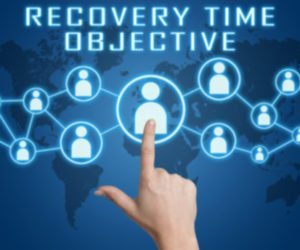How Much Recovery Capital Do You Have?

Words from a WSTC Therapist
By: Tyler Oberheim
Recovery capital is defined as the internal and external resources that an individual possesses to help sustain recovery (Granfield & Cloud, 1999; Cloud & Granfield, 2004). There are three main categories of recovery capital that an individual in recovery can possess and they include: personal recovery capital, family/social recovery capital, and community recovery capital.
When we discuss personal recovery capital, we look at it as being composed of two separate entities: physical and human recovery capital. Our personal recovery capital can be broken down into both physical and human capital. Our physical recovery capital includes the status of our personal health, financial status, having health insurance vs. not having health insurance, a safe living environment that is conducive to recovery, and our basic necessities of clothing, food, and access to transportation. The human recovery capital is composed of our personal values and knowledge towards sobriety and life, educational and vocational skills, self-awareness, self-esteem, and self-efficacy.
Familial and social recovery focuses on the health of our relationships with intimate partners, family, or with our friends. It is important that these relationships include healthy boundaries and be supportive of our recovery process. The participation in social events that are sobriety based (i.e. fellowship picnics, fellowship conventions, etc.) helps to strengthen the family and social recovery capital that we possess.
Our community recovery capital encompasses the community attitudes, policies, and resources that the community holds towards drug and alcohol treatment and rehabilitation and the level of resources that are conducive to recovery. Examples of community recovery include efforts to reduce the stigma of addiction and recovery, recovery centers, sober living homes, and sources of recovery support and early re-intervention.
The stigma associated with addiction and recovery can bring about emotions that we are uncomfortable with. When researching locations in which to live, be sure to look at the resources for recovery that are available in the town where you plan to move as this can be a valuable asset to your recovery capital.
Recovery capital has been seen as a potential antidote for issues that have been affecting an individual’s ability to remain sober. These issues include lack of motivation, emotional distress, dealing with peer pressure situations, interpersonal conflicts, and other events that could increase our risk for relapse. All of these factors mixed with critical factors that have been found to contribute to the onset of addiction (i.e. family history of substance abuse, high emotional distress, early age of unsupervised onset of alcohol and drug use, etc.) have been found to keep us in the cycle of addiction.
However, scientific research has found that both the quantity and quality of an individual’s recovery capital plays a major role in determining the success or failure of natural (on your own) and assisted (treatment programs) recovery along with counter-acting the negative and critical factors associated with the perpetuation of substance abuse.
With this being said, the more recovery capital you possess the greater your chance of staying in recovery as long as your recovery capital is of a strong quality.
Each and every one one of us should take an inventory of the recovery capital that we currently possess. After this inventory has been taken, we should determine where there are areas for improvement and aim on working towards improving this areas. Once we have acquired adequate recovery capital we can then continue on with our journey through recovery and overcome the bumps in the road through the use of our capital.
If you or a loved one needs help with abuse and/or treatment, please call the WhiteSands Treatment at (877) 855-3470. Our addiction specialists can assess your recovery needs and help you get the addiction treatment that provides the best chance for your long-term recovery.
